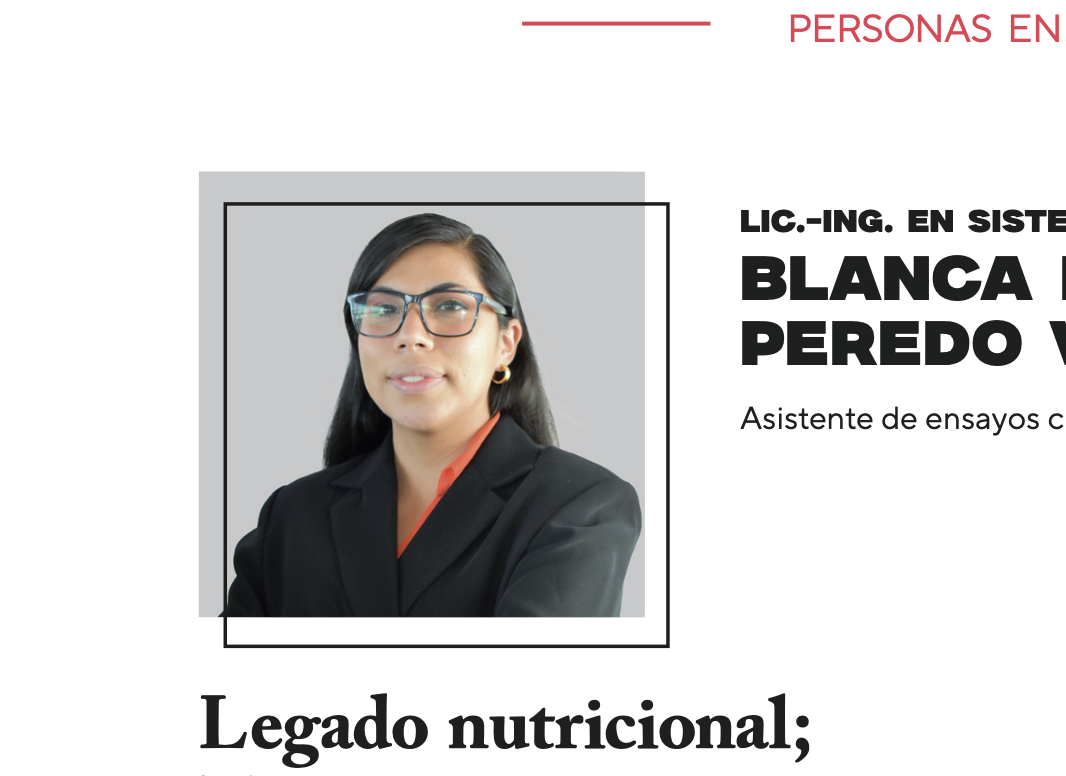
4 minute read
People in Science
Nutritional legacy; Thomas Colin Campbell
Thomas Colin Campbell was born on a dairy farm in Virginia, United States, on March 14, 1934. From a loving family and a cheerful childhood, Campbell was the first to attend college. In 1956 he obtained his degree in Pre veterinary Medicine from Penn State University, where thanks to the help and interest of Professor Clive McCay (recognized for his research on nutrition and aging) he got a scholarship to study the Master’s degree in Nutrition and Biochemistry at Cornell University, his love for science led him to finish his doctorate in Nutrition in 1962.
Thereafter, his career only grew; in 1963 he became a research associate at MIT, where he focused on studying dioxin, later identified as Agent Orange, a pollutant used in Vietnam.
Focused on education, science, and nutrition, Campbell worked for the U.S. Department of State within a national network of feeding centers in the Philippines to help malnourished children. This work led him to serve on a Nutrition Select Committee in the U.S. Senate, which would help him realize one of his greatest achievements:
The China Study
In the early 1980s, Campbell directed a laboratory focusing his studies on the effects of nutrition and its relationship to liver cancer, which would be joined for a brief time by Dr. Chen Junshi, from China who was working in Albany, New York, who was particularly interested in the role of selenium in hepatocarcinogenesis. Dr. Chen conducted studies on the effect of selenium on human nutrition, which is now known as the final chapter of the essential nutrient study, as no new essential nutrients have been discovered since this study was published in late 1979.

Shortly after his return to China, Dr. Chen Junshi became Deputy Director of the Institute of Nutrition and Food Hygiene in Beijing, and soon after collaborative talks were formed with Dr. Campbell. In China, cancer was a growing problem, speculated that it could be due to environmental and dietary patterns. Li Junyoa, an epidemiologist at the Chinese Academy of Medical Sciences, conducted extensive studies with impressive sociodemographic results about the presence of cancer in rural areas and large cities in the Asian country. In the U.S., the pattern was very similar, prompting Chen and Campbell to propose a study on factors related to nutrition and cancer, as well as their relationship to other diseases.
The study was so peculiar that they got funding from several cancer institutes in the US. In the U.S. and England, however, most of the support for this study came from China’s government and its population.
For the study, 65 counties in rural China participated, from each of them 2 villages and 50 families per village were randomly selected, of which 50% of men and 50% of women participated, with a total of 6,500 participants, who participated in the surveys and measurements carried out between 1983 and 1990 about food. The lifestyle and diseases of the population.
In 1990 the first results of the study were published and by 2005, Collin Campbell and Tomas Campbell published the book The China Study which ended up becoming a Best Seller, thanks to the fact that it analyzes the relationship between food, diseases, and health. Now this book is considered one of the most important on food and health.
Today, at 89, Campbell continues to work in the field of health and nutrition, publishing articles and enjoying himself with his wife and children and collaborates with other researchers through Cornell University and his non-profit organization, the T. Collin Campbell Center for Nutrition Studies.

Engineer in biological systems Blanca M. Peredo Vazquez
Clinical Trial Assistant at Drox Health Science










